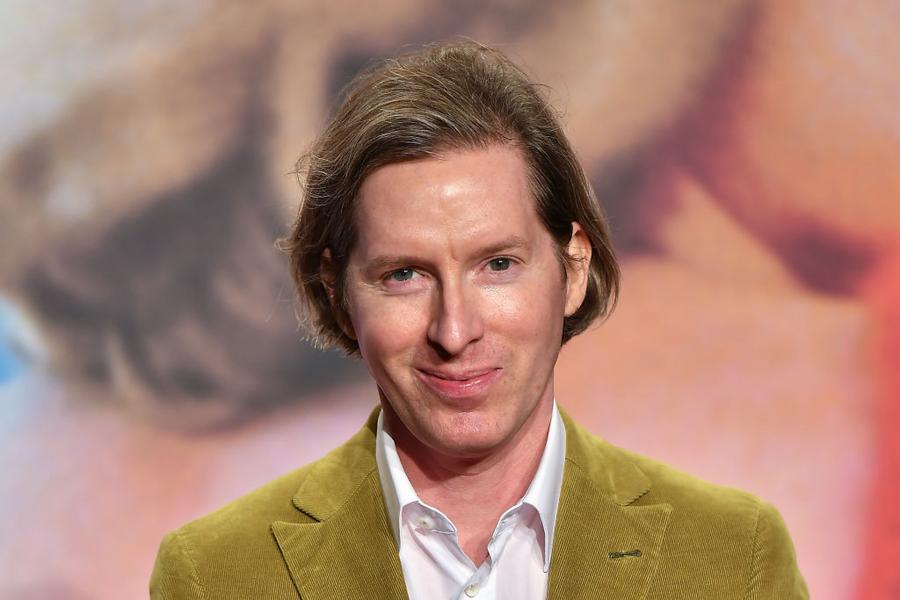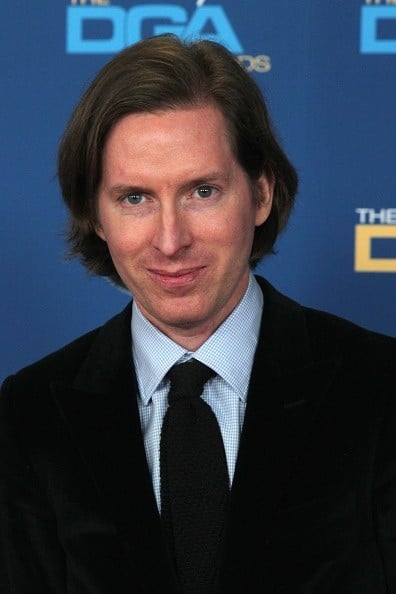What Is Wes Anderson's Net Worth and Salary?
Wes Anderson is an American film director, screenwriter, and producer who has a net worth of $50 million. Wes Anderson emerged as a distinctive voice in American cinema with his 1996 debut feature "Bottle Rocket," but it was 1998's "Rushmore" that established his signature style: meticulous symmetrical compositions, deadpan humor, carefully curated soundtracks, and themes of family dysfunction and lost innocence.
His 2001 film "The Royal Tenenbaums" marked his breakthrough to mainstream recognition, earning an Oscar nomination for its screenplay. Anderson went on to create a string of critically acclaimed films including "The Life Aquatic with Steve Zissou," "The Darjeeling Limited," and "Moonrise Kingdom," each refining his distinctive visual aesthetic and storytelling approach.
"The Grand Budapest Hotel" (2014) represented a career peak, winning four Academy Awards and widespread critical praise. His stop-motion films "Fantastic Mr. Fox" and "Isle of Dogs" demonstrated his versatility across mediums while maintaining his artistic vision. 2023's "Asteroid City" and 2024's "The Wonderful Story of Henry Sugar" continued Anderson's exploration of nested narratives and visual precision. Throughout his career, Anderson has maintained a loyal ensemble of collaborators including Bill Murray, Owen Wilson, and frequent cinematographer Robert Yeoman, while consistently pushing the boundaries of his distinct cinematic style.
Early Life
Wesley Wales Anderson was born on May 1, 1969, in Houston, Texas. Raised alongside two brothers, Wes watched his parents break up when he was eight years old. During his childhood, Anderson fell in love with filmmaking after using his father's Super 8 camera to create silent films. He initially saw himself becoming a scriptwriter, although he would eventually gravitate towards directing.
During his youth in Texas, Wes worked as a part-time projectionist in Austin. He also attended the University of Texas Austin, where he met Owen Wilson for the first time. Wilson would eventually star in many of his films. In 1990, Anderson graduated from the University of Texas Austin with a degree in philosophy.

(Photo by Dominique Charriau/WireImage)
Career
Five years after graduating from university, Anderson released his first feature film, "Bottle Rocket." Released in 1996, the film failed to make much of an impact at the box office, although it received strong reviews. The movie was based on a short film that Wes Anderson had created much earlier with Luke Wilson and Owen Wilson. He experienced much greater success with his next movie, "Rushmore." Starring Jason Schwartzman as an eccentric high school student, the film was widely celebrated by critics and grossed around $20 million at the box office. "Rushmore" also starred Bill Murray, and it reinvigorated his career. This would prove to be the beginning of a long partnership between Murray and Anderson.
"Rushmore" helped Wes win an Independent Spirit Award for Best Director, and "Bottle Rocket" was subsequently given a greater degree of exposure as a result. In 2001, Anderson released "The Royal Tenenbaums," a movie that featured a star-studded cast. Gene Hackman, Ben Stiller, Luke Wilson, and Gwyneth Paltrow all played major roles, and they helped propel the film to box office earnings of over $71 million. Critics also adored Anderson's latest effort – and it was nominated for an Academy Award. Today, "The Royal Tenenbaums" is widely considered to be one of the best films ever made.
In 2004, Anderson partnered with Bill Murray with the release of "The Life Aquatic with Steve Zissou." Heavily inspired by the exploits of Jacques Cousteau, the film strongly highlighted Wes' signature art style. Although the film has achieved cult status, Anderson failed to reach the same level of commercial and critical success that he had experienced with "The Royal Tenenbaums." Unfortunately, "The Darjeeling Limited" failed to make much of an impact either in 2007.
Over the next period, Wes decided to switch gears and create a stop-motion film called "Fantastic Mr. Fox." Released in 2009, this critically-acclaimed film featured voice work from acting greats such as George Clooney, Meryl Streep, and Willem Dafoe – along with many other "staples" from previous Wes Anderson films. Although "Fantastic Mr. Fox" was nominated for an Academy Award for Best Animated Feature, it was barely profitable in terms of box office earnings.

Getty Images
In 2012, Anderson released "Moonrise Kingdom," which debuted at the Cannes Film Festival. Bill Murray appeared in the film once again, but this time, Anderson also brought in established actors like Edward Norton and Bruce Willis. Despite having a budget of only $16 million, the film managed to rake in over $68 million. This was Anderson's most commercially successful film since "The Royal Tenenbaums."
In 2014, Anderson achieved an ever greater level of commercial success with "The Grand Budapest Hotel." Starring Ralph Fiennes, Jeff Goldblum, Willem Dafoe, and many other renowned actors, the film generated almost $175 million in box office earnings. "The Grand Budapest Hotel" was also critically successful, and it was nominated for nine Oscars. This was the first time Anderson had ever been nominated for Best Director. At the end of the day, "The Grand Budapest Hotel" won Best Production Design, Best Costume Design, Best Makeup, and Best Original Score.
After this success, Anderson decided to return to stop-motion films. He released "Isle of Dogs" in 2018, which earned over $64 million at the box office and was nominated for two Academy Awards. In 2018, reports suggested that Wes was working on a new film set in post-war France. It was later revealed that the title of this film was "The French Dispatch." Slated for release in 2020, the film was pulled from the schedule due to the Covid-19 pandemic. Outside of feature films, Anderson has released a number of shorts over the course of his career.
Relationships
Wes Anderson is in a long-term relationship with a Lebanese writer, costume designer, and voice actress named Juman Malouf. In 2016, the couple welcomed their first child into the world. The family currently lives in Paris.
/2020/10/Wes-Anderson-1.jpg)
/2010/01/Luke-Wilson.jpg)
/2009/12/Bill-Murray.jpg)
/2020/10/Jason-Schwartzman.jpg)
/2019/01/Noah-Baumbach.png)
/2021/10/roald-dahl.png)
/2018/03/GettyImages-821622848.jpg)
/2017/02/GettyImages-528215436.jpg)
:strip_exif()/2015/09/GettyImages-476575299.jpg)
/2009/11/George-Clooney.jpg)
/2009/09/Cristiano-Ronaldo.jpg)
/2020/02/Angelina-Jolie.png)
/2020/06/taylor.png)
/2020/04/Megan-Fox.jpg)
/2019/10/denzel-washington-1.jpg)
/2009/09/Brad-Pitt.jpg)
/2009/09/Jennifer-Aniston.jpg)
/2020/10/Wes-Anderson-1.jpg)
/2020/10/Jason-Schwartzman.jpg)
/2010/01/Owen-Wilson.jpg)
/2009/12/Bill-Murray.jpg)
/2010/12/rid.jpg)
/2010/01/Luke-Wilson.jpg)
/2014/08/Greta-Gerwig-1.jpg)
/2010/09/Sofia-Coppola.jpg)
/2020/01/lopez3.jpg)
/2019/04/rr.jpg)
/2019/11/GettyImages-1094653148.jpg)